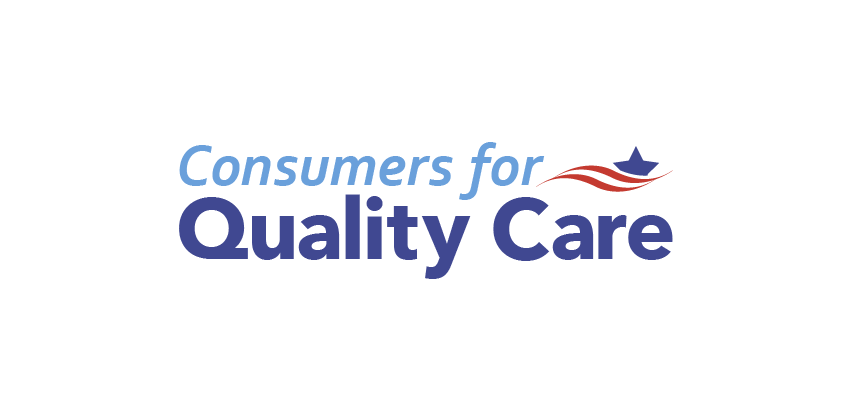CQC Educates Consumers On Rising Cost Of Care During Health Literacy Month
By Consumers for Quality Care, on October 29, 2024

For Immediate Release
October 29, 2024
Contact: press@consumers4qualitycare.org
CQC Educates Consumers On Rising Cost Of Care During Health Literacy Month
Consumers for Quality Care is providing essential resources and insights for Medicare beneficiaries and ACA enrollees
WASHINGTON, D.C. – This October, Consumers for Quality Care (CQC), a coalition of advocates and former policymakers, is previewing out-of-pocket cost relief coming for Medicare Part D, and highlighting strategies to address anticipated increases in prior authorization activity by insurers in the coming year. As part of Health Literacy Month, CQC is seeking to educate consumers on their rights and empower them to utilize the appeals process for denied prior authorization requests.
“As we navigate an increasingly complex health care landscape, it’s vital for consumers to be informed and empowered,” said CQC Board Member Jason Resendez. “The rising costs of care and the challenges posed by prior authorization can leave many feeling overwhelmed. Through our Health Literacy Month initiative, we’re committed to equipping Medicare beneficiaries and ACA enrollees with knowledge they need to advocate for their health and financial well-being. Understanding your rights and the appeals process is not just important – it’s essential for ensuring you receive the care you deserve without the burden of crushing medical debt.”
During Health Literacy Month, CQC is promoting awareness around the following:
- Medicare Part D Benefits for 2025. Medicare Part D recipients will never pay more than $2,000 in total out-of-pocket costs for Part D prescription drugs in 2025. A new, voluntary Medicare Prescription Payment Plan program means seniors can opt in to spread the cost of their out-of-pocket Part D prescription costs throughout the year.
- Rising Costs for ACA and Employer-Sponsored Health Insurance. ACA plan insurers are expected to raise premiums by an average of seven percent in 2025. Employer-sponsored plan costs are expected to rise between eight and nine percent. Many of those employer plans are looking to manage their cost increases by further implementing so-called “cost-sharing initiatives” – like raising deductibles, co-insurance, co-pays and premiums – that put even more undue financial burden on patients and by focusing on “utilization control initiatives” – like requiring prior authorization for tests, treatments, and medications before insurance will cover them.
- Prior Authorization Challenges. Prior authorization requires physicians to secure approval from insurers for needed procedures or medications. The process often results in significant delays in care and dangerous denials for tests, treatments and medications that doctors are recommending. Forcing consumers to delay important tests and treatments or making them pay out-of-pocket for expensive procedures and medications when they have health insurance, is outrageous. Forcing patients to wait days, weeks and even months for the procedures and medicines they need has life-threatening consequences.
- Appealing Prior Authorization Denials. In 2025, prior authorization will continue to be an all-too-common fixture in employer-sponsored and government managed health insurance plans that prevents patients from getting the vital care they need. However, patients who find their prior authorization requests denied have a strong avenue for recourse. A recent review of Medicare Advantage prior authorization requests revealed that just one of every ten prior authorization requests that were denied in 2022 were appealed. It also showed that the vast majority – more than 80% – of the denials that were appealed resulted in the insurer partially or fully overturning the denial. The bottom line: while the prior authorization system comes with serious consequences for patients and the delays incurred during the appeal may have negative health repercussions, patients should use the tools they have to appeal care denials.
With over 100 million Americans carrying medical debt, understanding health care options is crucial as we prepare for Open Enrollment for 2025 coverage. Annual Open Enrollment for Medicare prescription drug coverage (Part D) is October 15-December 7, 2024, for coverage beginning January 1, 2025. Open enrollment is also underway for many employer-sponsored plans. Open enrollment for ACA plans begins November 1, 2024, and runs through January 15, 2025.
Read more from CQC about Health Literacy Month 2024. To learn more about how consumers can navigate health care costs and appeal processes, visit Healthcare.gov and Medicare.gov. Visit MapRX for detailed information about 2025 Medicare Prescription Drug Annual Open Enrollment. Consumers can follow @4qualitycare for tips and updates throughout the month. You can learn more about Consumers for Quality Care at consumers4qualitycare.org/.
###
Consumers for Quality Care (CQC) is a coalition of advocates and former policymakers working to provide a voice for patients in the health care debate as they demand better care. CQC is led by a board of directors that includes the Honorable Donna Christensen, physician and former Member of Congress; Jim Manley, former senior advisor to Senators Edward Kennedy and Harry Reid; Jason Resendez, community advocate and health care strategist; and Mary L. Smith, former CEO of the Indian Health Service.
